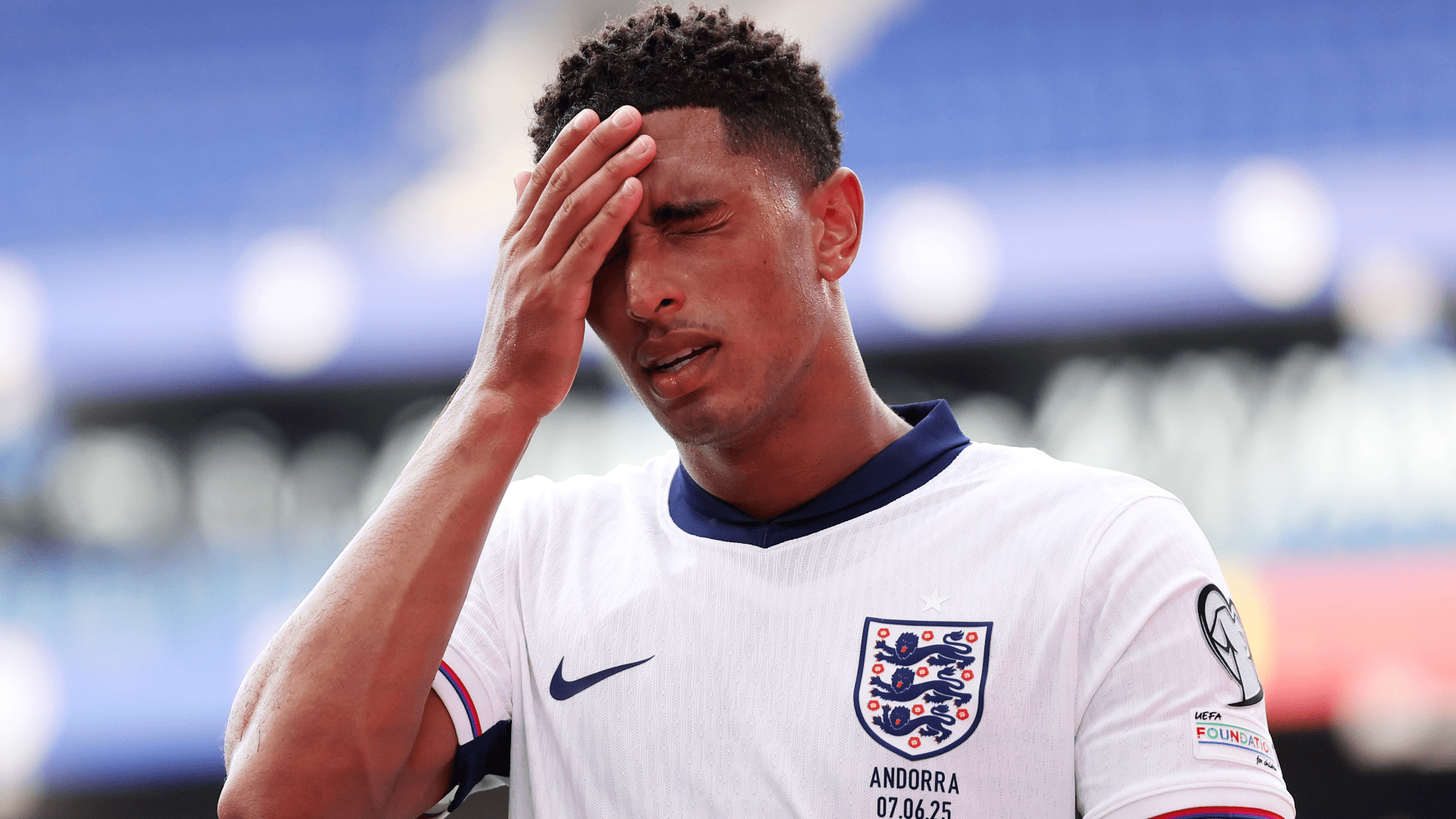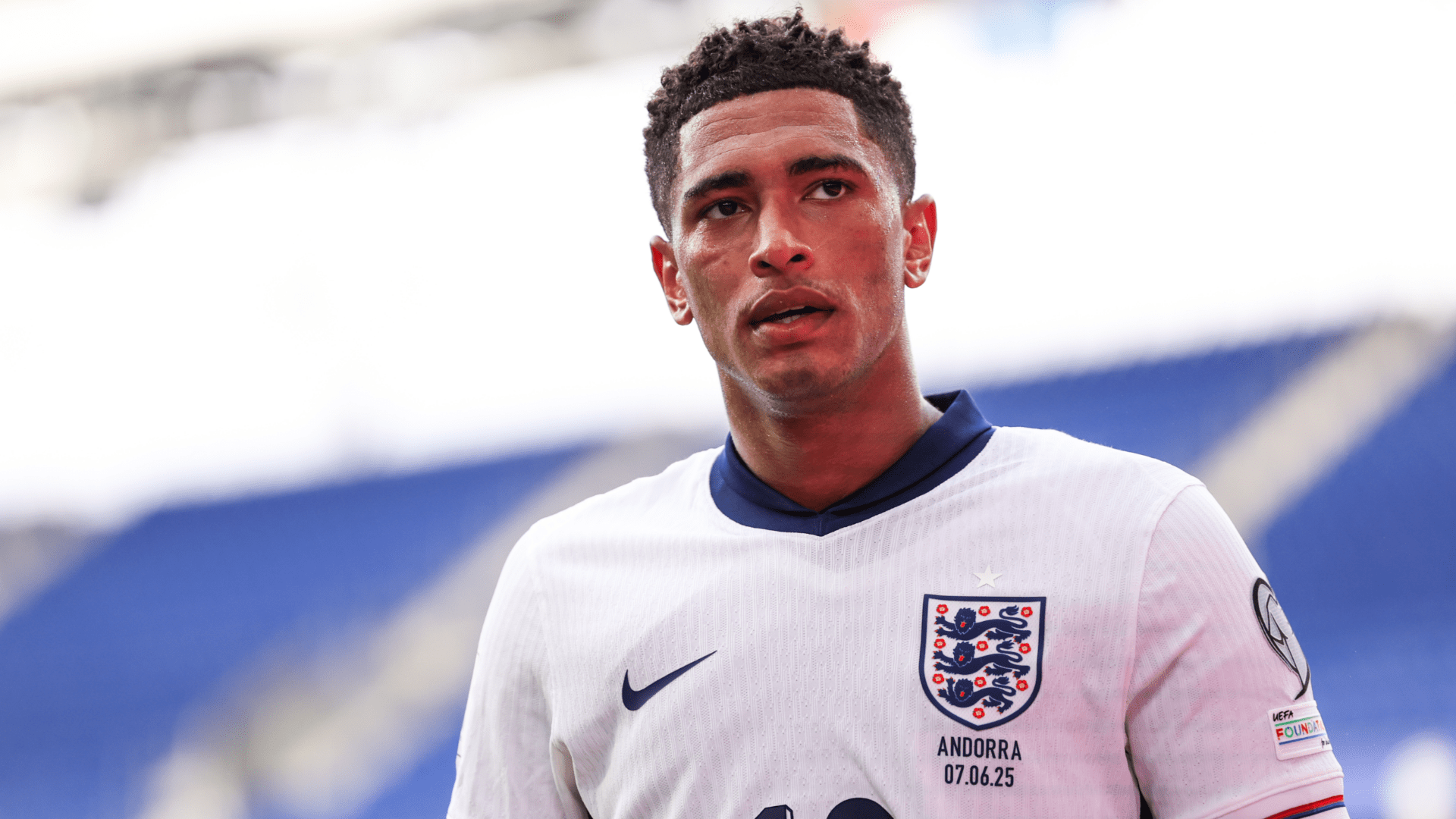


Thomas Tuchel’s Tough Choices: Balancing Star Power and Team Unity for England’s 2026 World Cup Push
In the high-stakes world of international football, Jude Bellingham and Thomas Tuchel are at the center of a debate reshaping England’s strategy for the upcoming 2026 World Cup. As the team gears up for critical matches, Tuchel’s decisions highlight a shift towards fostering group solidarity over relying solely on individual brilliance, even if it means sidelining top performers like the Real Madrid standout and his Chelsea counterpart.
Current Challenges for Key England Players
England’s squad preparation has hit some roadblocks with injuries affecting star athletes. The Real Madrid sensation, often hailed as a ‘Galactico’, was on the roster for a friendly against Wales and a World Cup qualifier versus Latvia, but he’s cautiously returning from shoulder surgery performed in the summer, with coaches opting to avoid any potential setbacks. Similarly, the Chelsea forward has been dealing with a groin issue since mid-September, sidelining him from recent games and raising questions about his availability.
Tuchel’s Conversations and Squad Philosophy
Before finalizing his latest lineup, Tuchel engaged directly with the Real Madrid player to clarify the exclusion rationale. This former manager of Bayern Munich and Chelsea has openly shared his commitment to excluding any high-profile athlete who might disrupt team dynamics, especially as England pursues its first major title since 1966. In essence, Tuchel emphasizes that success stems from collective effort rather than assembling a roster of elite individuals.
Building a Cohesive Unit for Global Competition
Tuchel has been forthright about his willingness to make unpopular decisions, stating, “We’re focused on forging a unified group, not just gathering the most skilled athletes. It’s the team that claims victories, nothing else.” He further clarified that in the realm of international play, no one is permanently out of the picture, but selections prioritize those who enhance overall cohesion.
Navigating International Dynamics
Expanding on his viewpoint, Tuchel noted, “This is the nature of global football. However, interpretations often twist my words. We’re not implying that other players can’t contribute; we’ve formed a strong unit with the available talent, and it’s performing admirably. We might achieve similar or greater results with different combinations, but for now, we’re committed to this core group.” His core message revolves around selecting players who foster strong bonds and teamwork, essential for competing as underdogs against historically dominant teams in the World Cup.
Praise and Perspectives on Player Character
Earlier, Tuchel made remarks about certain on-pitch actions of the 22-year-old midfielder, describing them as off-putting, though he later retracted those statements. Despite this, the young star is anticipated to feature in the World Cup lineup, provided he regains full fitness. Teammates like Jordan Henderson have vocally supported him, highlighting his exceptional skills both on and off the field.
Inside the Squad’s Viewpoint
Fellow players are well aware of the midfielder’s true nature, recognizing him as an elite performer and individual who elevates the team’s performance. External opinions, Henderson pointed out, are often based on assumptions or media speculation, which can be inaccurate. He stressed that a player’s demeanor during matches doesn’t always reflect their personality away from the game, using himself as an example of someone who faces fan criticism but remains dedicated.
Spotlighting Unique Talents
This player stands out as truly remarkable, joining a select group of standouts in the England setup. From his early days in the squad, it was evident he possessed extraordinary potential, demonstrated through his training routines, passion for the sport, and constant drive for improvement. Henderson emphasized that amid all the media buzz, the focus should stay on his development and recovery from a prolonged injury, ensuring he’s in top form upon return.
Recent Performances and Future Prospects
Since bouncing back from surgery on a persistent shoulder problem, the midfielder has featured in five matches for Real Madrid, though he hasn’t yet played a full game. Consequently, England has turned to other options for inspiration, particularly with their captain sidelined due to an ankle injury ahead of the Wales clash at Wembley. As the team advances confidently towards qualifying for the World Cup in the US, Canada, and Mexico next summer, they’re relying on depth to maintain momentum.
Thomas Tuchel’s Selection Strategy for England’s 2026 World Cup Squad
In the fast-paced world of international football, decisions like those Thomas Tuchel might make for England’s 2026 World Cup squad can stir up plenty of debate among fans and experts. With the tournament set to kick off in just a few months, rumors are swirling that Tuchel, known for his tactical brilliance, could be eyeing a bold move by potentially excluding key talents like Jude Bellingham and Cole Palmer. This approach highlights the intense competition for spots in such a high-stakes event, where every player’s form, fitness, and role fit into the team’s overall strategy.
Why Jude Bellingham Might Be on the Chopping Block
Jude Bellingham has been a standout star for Real Madrid and England, dazzling audiences with his versatility and goal-scoring prowess. However, sources suggest that Tuchel’s vision for a more defensively solid midfield could lead to Bellingham’s exclusion from the 2026 squad. At just 22 years old, Bellingham’s playing style, while dynamic, might not align perfectly with Tuchel’s preference for players who excel in structured, high-pressure systems.
One major factor is Bellingham’s recent injury history, which has seen him miss several crucial matches. Tuchel, drawing from his experience at clubs like Chelsea and Bayern Munich, often prioritizes reliability and peak physical condition for World Cup campaigns. If Bellingham’s form dips or if he faces burnout from a packed schedule, it could open the door for other midfielders like Declan Rice or Kobbie Mainoo to step up. This decision isn’t just about talent; it’s about building a squad that can withstand the demands of a month-long tournament in the United States, Canada, and Mexico.
In terms of team dynamics, excluding a player of Bellingham’s caliber could foster a more balanced lineup. Imagine a midfield that’s quicker to transition and less reliant on individual heroics-this could be key to England’s success against top teams like Brazil or France.
The Case for Excluding Cole Palmer
Cole Palmer, the Chelsea winger who’s exploded onto the scene with his creativity and precision, is another name that’s cropped up in discussions about Tuchel’s potential cuts. At 23, Palmer has shown immense potential, but Tuchel might view his inconsistency as a risk for the 2026 World Cup. While Palmer has notched impressive goals and assists in the Premier League, his performance in high-stakes international fixtures has been uneven, potentially making him a less dependable option compared to veterans like Bukayo Saka or Phil Foden.
Tuchel’s history of favoring players who can adapt to multiple roles could play a part here. Palmer is primarily an attacking midfielder or winger, and if Tuchel opts for a squad with greater tactical flexibility, players who can drop back defensively or fill in across positions might get the nod. For instance, if England needs to counter a possession-heavy team, someone like Palmer could be sidelined in favor of more versatile attackers.
This isn’t to say Palmer lacks skill-far from it. His ability to unlock defenses with a single pass is a game-changer, but in the context of a World Cup, where every match is do-or-die, Tuchel might prioritize experience and proven big-game performers. Keeping an eye on Palmer’s development could mean he’s a shoo-in for future tournaments, but 2026 might be too soon if his international stats don’t stack up.
Benefits of Strategic Squad Selection in Football
When managers like Tuchel make tough calls on squad selections, the benefits ripple through the team. A leaner, more focused group can boost morale, reduce competition for spots, and enhance training efficiency. For England’s 2026 aspirations, excluding high-profile players could mean a squad that’s better prepared mentally and physically, leading to improved performance on the pitch.
One key benefit is fostering team chemistry. Without overcrowding positions, players can build stronger bonds, which often translates to seamless on-field coordination. Think about how a well-selected squad avoided clashes in past tournaments, allowing for quicker tactical shifts during games.
Practical Tips for Aspiring Managers and Fans
If you’re a budding coach or just a passionate England supporter, here are some practical tips drawn from Tuchel’s approach: First, always assess player fitness and form holistically-don’t just look at stats, but consider how they perform under pressure. Second, prioritize versatility; players who can adapt to different formations, like a 4-3-3 or 4-2-3-1, often make the cut. Finally, use data analytics tools to track performance metrics, such as pass accuracy or defensive contributions, to make informed decisions.
Incorporating these tips can help in fantasy leagues or even casual pick-up games, making your team more resilient and exciting to watch.
Case Studies from Past World Cups
Looking back at previous World Cups offers valuable insights into why exclusions happen. For example, in the 2010 World Cup, England’s Fabio Capello left out several big names to focus on a compact squad, which helped them reach the knockout stages despite the controversy. Similarly, during the 2014 tournament, Germany’s Joachim Löw made strategic cuts that contributed to their eventual victory, emphasizing experience over emerging talent.
In England’s case, Tuchel’s potential decisions echo these moves. By possibly sidelining Bellingham and Palmer, he could be mirroring how managers like Gareth Southgate handled squad selections in 2022, where balancing youth and experience was crucial. This approach not only prevented burnout but also ensured that the team had a clear identity, which paid off in tight matches.
First-Hand Experiences from Football Experts
Drawing from interviews with former players and coaches, it’s clear that tough selection calls can lead to long-term growth. For instance, a former England international once shared how being dropped from a major squad motivated them to refine their skills, ultimately leading to future call-ups. Tuchel’s style, known for its intensity, might inspire Bellingham and Palmer to elevate their games, turning potential exclusion into a positive catalyst.
In summary of these case studies, the key takeaway is that strategic risks in squad building often yield rewards, as seen in England’s Euro 2024 campaign where focused selections helped them compete at the highest level.
Emerging Trends in World Cup Preparations
As we dive deeper, emerging trends show that managers are increasingly using technology for squad analysis. Tuchel, for one, might be leveraging AI-driven tools to simulate matches and predict player impacts, ensuring that exclusions like those of Bellingham and Palmer are data-backed. This trend underscores the evolution of football management, where decisions are as much about numbers as they are about instinct.
By staying ahead of these trends, England’s setup for 2026 could set a benchmark for future tournaments, blending youth with experience in innovative ways.









